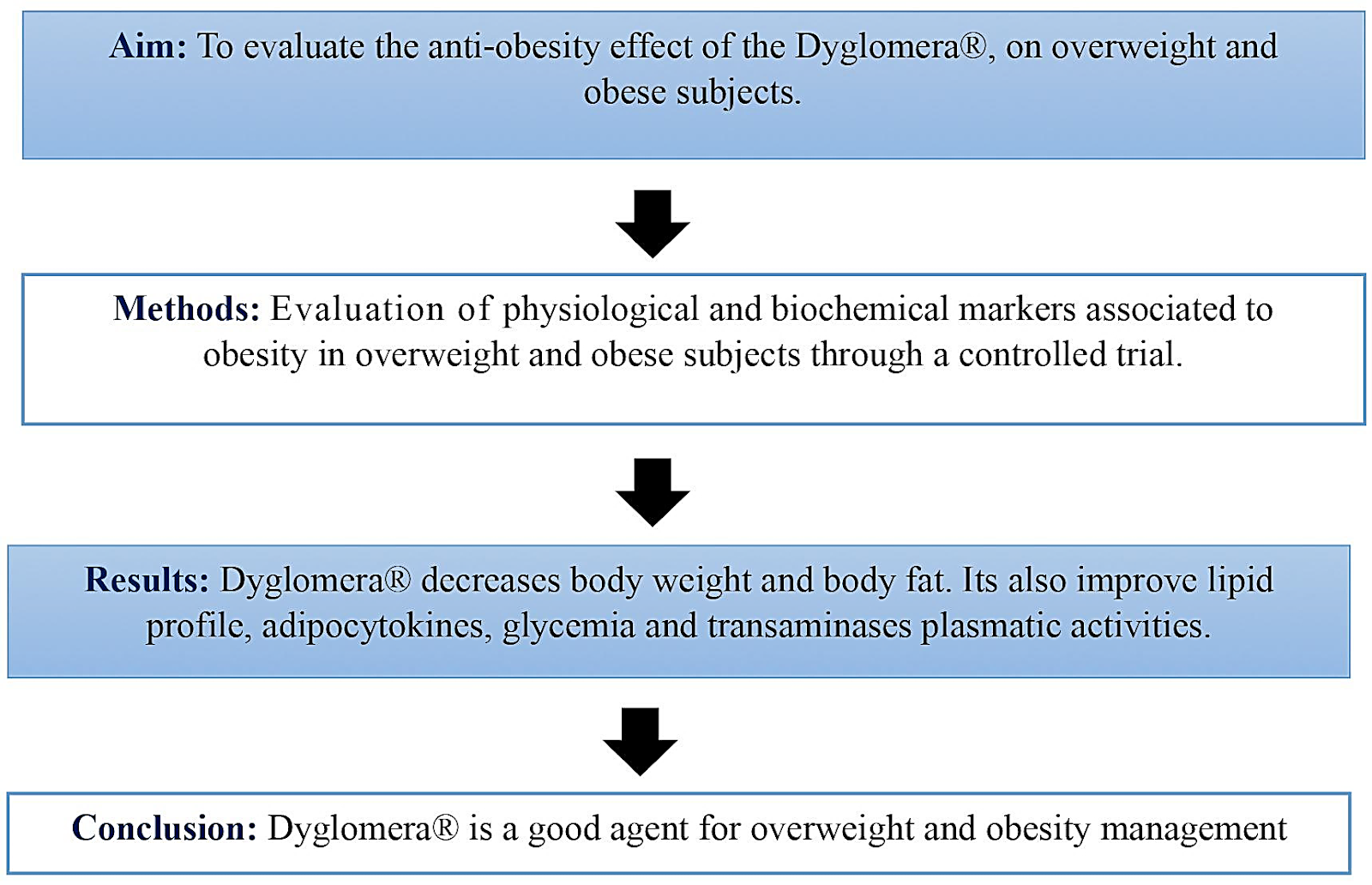The effects of Dyglomera (Dichrostachys glomerata extract) on body fat percentage and body weight: a randomized, double- blind, placebo-controlled clinical trial
DOI:
https://doi.org/10.31989/ffhd.v13i6.1088Abstract
Introduction: Previous studies have shown the beneficial effects of Dyglomera®, a hydroethanolic extract of Dichrostachys glomerata, on inflammation as well as parameters linked to metabolic syndrome. Its effect on body fat was however not verified. The present study was therefore carried out to evaluate the anti-obesity effect of the Dyglomera®, on overweight and obese subjects.
Methods: This 12-week randomized, double-blind placebo-controlled trial had percentage body fat measured by dual-energy X-ray absorptiometry, body weight and body mass index set as efficacy endpoints. On the other hand, key biochemical parameters were measured as secondary endpoints. The values of these parameters at T12 compared to T0 for the placebo and Dyglomera® groups were used as a measure of the efficacy.
Results: Subjects treated with Dyglomera® for 12 weeks showed significant differences, with 6.73 kg (p<0.05) decrease in the body weight and 22.85% (p<0.05) reduction in the percentage body fat. In addition, the markers of lipid profile, adipocytokines, glycemia and transaminases plasmatic activities were also improved by the intake of Dyglomera®.
Conclusions: This study shows that Dyglomera® effectively decreases the body weight in obese subjects after 12 weeks of treatment, which was accompanied by a reduction in the body fat and related disorders. Dyglomera®is a good agent for overweight and obesity management.

Keywords: Dichrostachys glomerata, Dyglomera®, body fat percentage, body weight, clinical trials.
Downloads
Published
Issue
Section
License
Any manuscripts or substantial parts of it, submitted to the journal must not be under consideration by or previously published in any other journal or citable form. Authors are required to ensure that no material submitted as part of a manuscript infringes existing copyrights or the rights of a third party. In submitting one's article in any form, the author has assigned the FFC publishing rights and has agreed to an automatic transfer of the copyright to the publisher. This is so that the FFC may create print option journals, for example, at the FFC’s discretion. If the author wishes to distribute their works by means outside of the FFC, for example within their community, they will have to place a request.
Correspondence concerning articles published in Functional Foods in Health and Disease is encouraged. While derivative works (adaptations, extensions on the current work, etc.) are allowed, distribution of the modified material is not allowed without permission from the FFC.